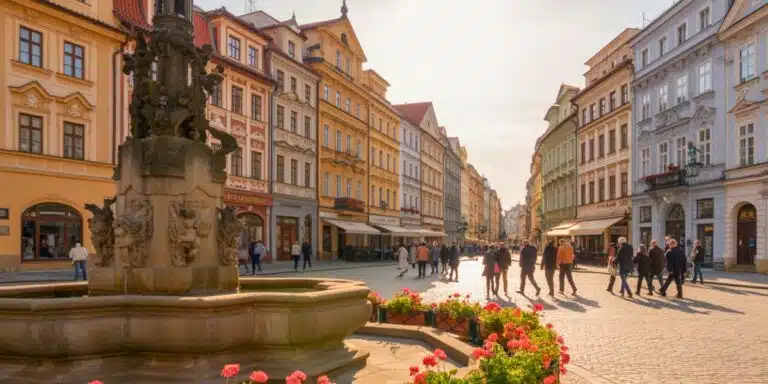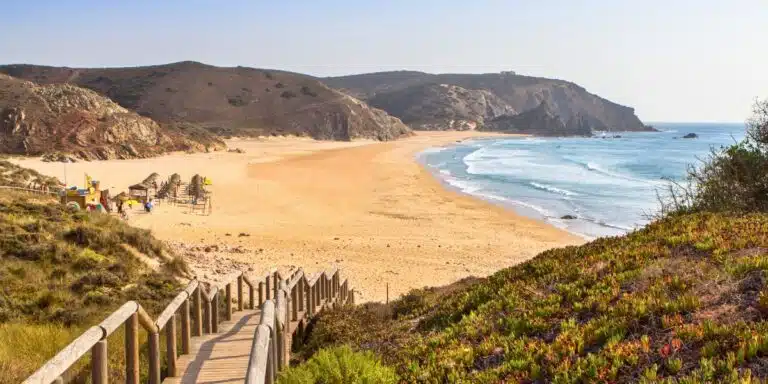This post may contain affiliate links, from which we earn an income. Click here to read our affiliate policy.
Being an English teacher in Portugal is much more than just lesson preparations and spending hours in your classroom; it is an opportunity to immerse in history, explore a new culture, and discover the natural beauty of this southern European country.

The Benefits of Language Immersion for Teachers
Teaching in a foreign country has many benefits, especially in terms of language immersion for English teachers. Living and working in a foreign country exposes educators to constant and real-life language input.
If you are not (yet) proficient in the local language, this constant exposure will enhance your own language skills, which can be of use in your teaching.
Full immersion gives educators the opportunity to use language teaching techniques in real-life, day-to-day situations. Such interactions can inspire authentic lesson material that is more relevant and engaging for students.
The Portuguese Culture & Lifestyle
Portugal’s rich culture is influenced by its long history and numerous traditions. Walking around the country, be it a major city or a historic small town, you’ll notice signs of the country’s artistic heritage in its architecture and tiles (azulejos). Lisbon, Porto, and Coimbra are must-see cities for architecture and history-loving English teachers.
Religion has deep roots in Portugal, which is noticeable in its strong Catholic heritage. You’ll find many historic churches and religious statues all around the country. Pilgrimages to sites like Fátima are important cultural and spiritual events for many Portuguese people.
As is common in more southern European countries, the Portuguese enjoy their siestas and slow pace of life. This way of life is especially prominent in smaller towns and rural areas where locals close down their businesses for a few hours to take an afternoon nap to avoid the heat of the day.
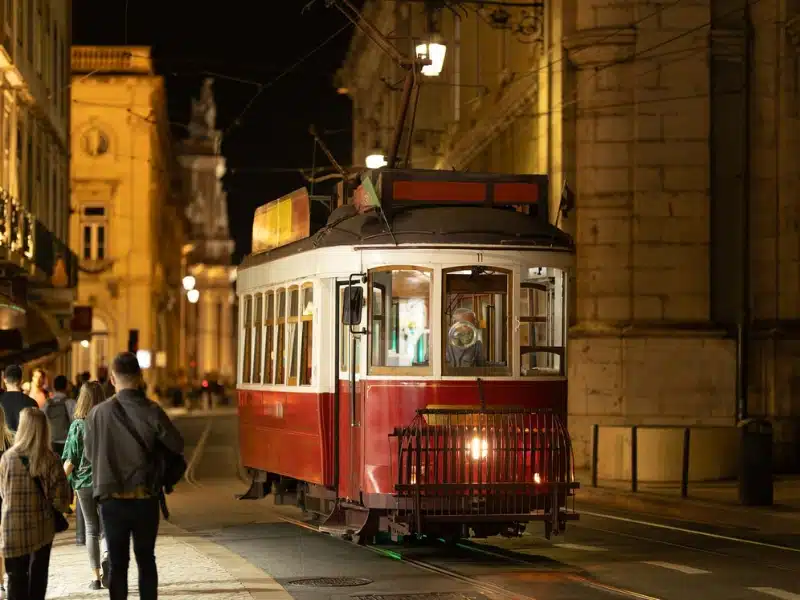
Local Cuisine & Festivals
Portugal is one of Europe’s countries with the longest coastline relative to land area, as about 60% of Portugal’s borders consist of coastline. With such easy access to the North Atlantic Ocean it comes as no surprise that Portugal’s cuisine is heavily centred around seafood.
Famous dishes like grilled sardines (sardinhas assadas), salted cod (bacalhau), seafood rice (arroz de marisco), and grilled octopus (polvo grelhado) are available throughout the entire country. If you have the opportunity to travel around, do try out these dishes at several locations to explore subtle local nuances.
The most famous pastry in Portugal is, without a doubt, pastel de nata. Pastéis de nata are egg tarts originating from the Belem area, a region west to the city of Lisbon. The most famous spot to eat one of these Portuguese delicacies is the historic café Pastéis de Belém. This café has been serving Lisbon locals and tourists alike since 1837.
A great way to discover local cuisine is by visiting one of Portugal’s local festivals. Celebrated mainly in Porto, Festa de São João (St. John’s Festival) is such a must-see festival. Imagine street parties, music, dancing, fireworks, and the interesting tradition of people hitting each other on the head with plastic hammers or leeks. Yes, you read that correctly: leeks. It is believed this practice brings good luck.
A local festival in Lisbon is Festival de Santo António. As the name implies, this festival celebrates Saint Anthony and it does so by processions and traditional dances such as the popular ‘Marchas Populares’, which takes place on the eve of the Santo António.
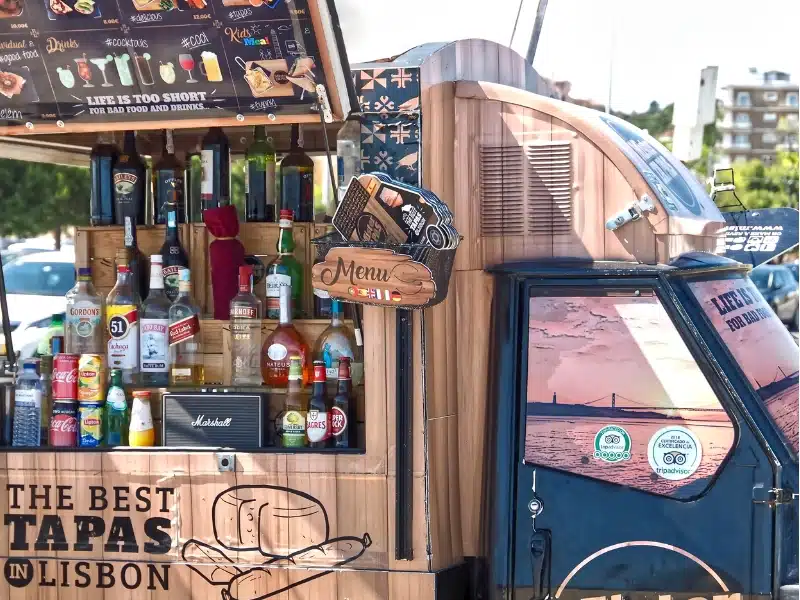
Must-See Places
Bustling Cities
On the top of this list stands Lisbon, the capital city of Portugal. Lisbon can be found on Portugal’s western coast where the Tagus River runs into the Atlantic Ocean. This city, also known as the City of Seven Hills, has numerous historical landmarks such as Belém Tower, Jerónimos Monastery, and São Jorge Castle. As the name ‘City of Seven Hills’ implies, you better put on your walking shoes as you explore this city, or take the historic tram 28 for a more relaxed way of travelling.
Portugal’s second most popular town is Porto. This historic town lies next to the Doura River and has an impressive waterfront with historic bridges like the Dom Luís I Bridge. A must-do in Porto is to explore Port wine cellars in Vila Nova de Gaia and learn all about Portugal’s famous fortified wine. And if you like a sporty challenge, you could even cycle from Porto to Lisbon.
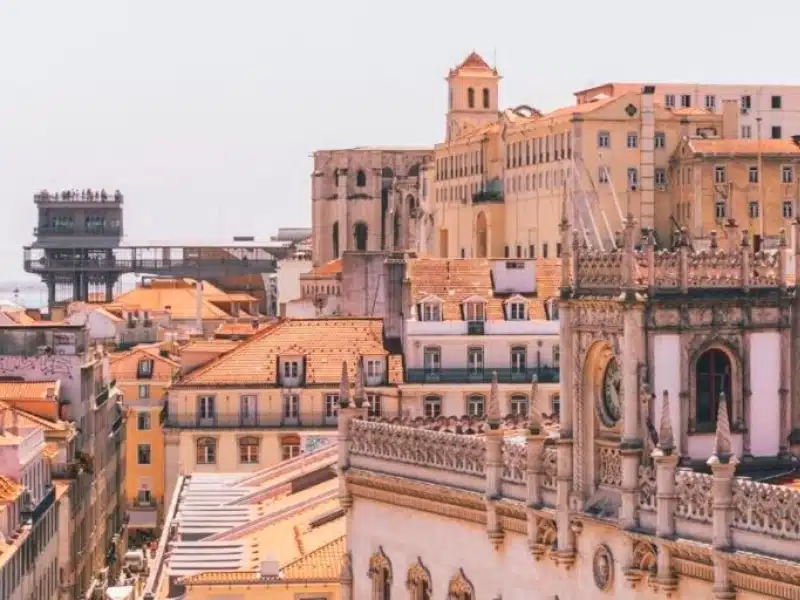
Historic Towns
Only 30 minutes from Lisbon lies the historic town of Sintra. This fairytale town is hidden between lush hills and deep forests, with its colourful Palácio da Pena offering panoramic views of the surroundings. This bright yellow palace is a fan-favourite among history and architecture enthusiasts.
Another sight in Sintra is the world-famous Quinta da Regaleira and its mysterious Initiation Well. This 27-metre deep structure has nine platforms, which are rumoured to refer to the nine circles of Hell from Dante’s Divine Comedy. The structure also has many references to Masonic principles, such as the compass over a Knights Templar cross at the bottom of the well.
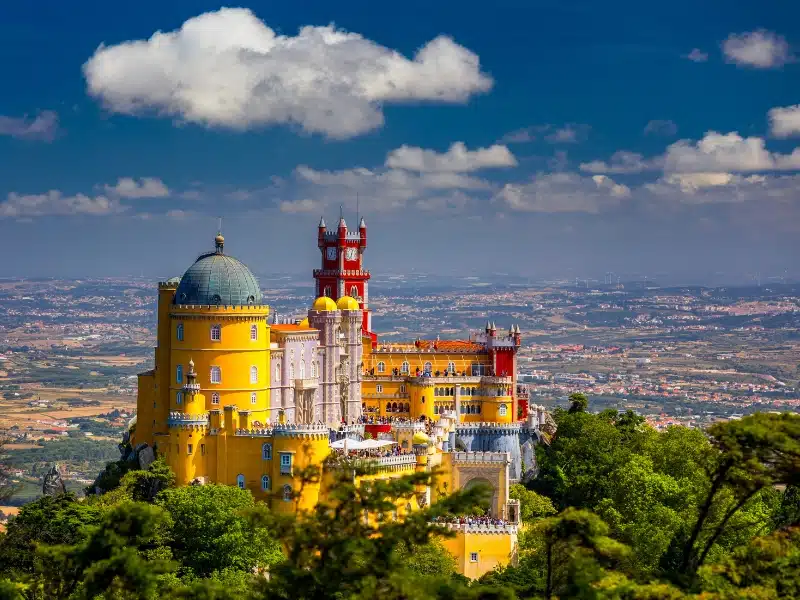
Coastal Beauty
When you say Portugal and beaches, you say Algarve coast. This coastal region in southern Portugal is world-famous for its pristine beaches, dramatic white cliffs, and crystal-clear waters. Some must-visit spots along the Algarve coast include Praia da Marinha, Benagil Cave, Ponta da Piedade in Lagos, and Albufeira’s beaches.
While Portugal is known mostly for its mainland, it also has several islands, the most well-known being Madeira and the Azores. Madeira, an archipelago in the Atlantic Ocean is sometimes referred to as Europe’s Hawaii with its rugged coastline, jungle-like greenery, and volcanic landscapes.
The Azores, an autonomous region of Portugal, are known for their interesting ecosystems and general natural beauty. Each island of the Azores offers something different, from black sand beaches to natural pools to dramatic cliffs.
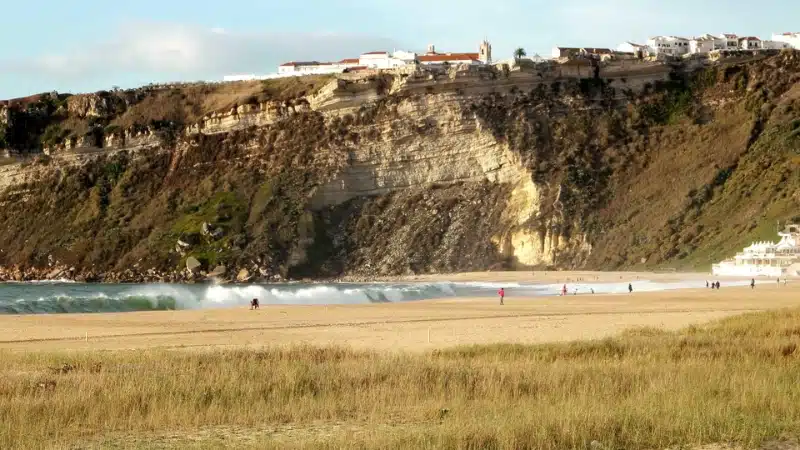
Conclusion
Portugal is the perfect place for English teachers who love history, culture, and natural beauty. The country’s rich cultural heritage, warm climate, and diverse geography has something for anybody; from historic towns to coastal beauty, Portugal surprises even the most experienced travellers.
Are you intrigued to teach English in Portugal after reading all that? There is no better day than today to start working on making that a reality!


